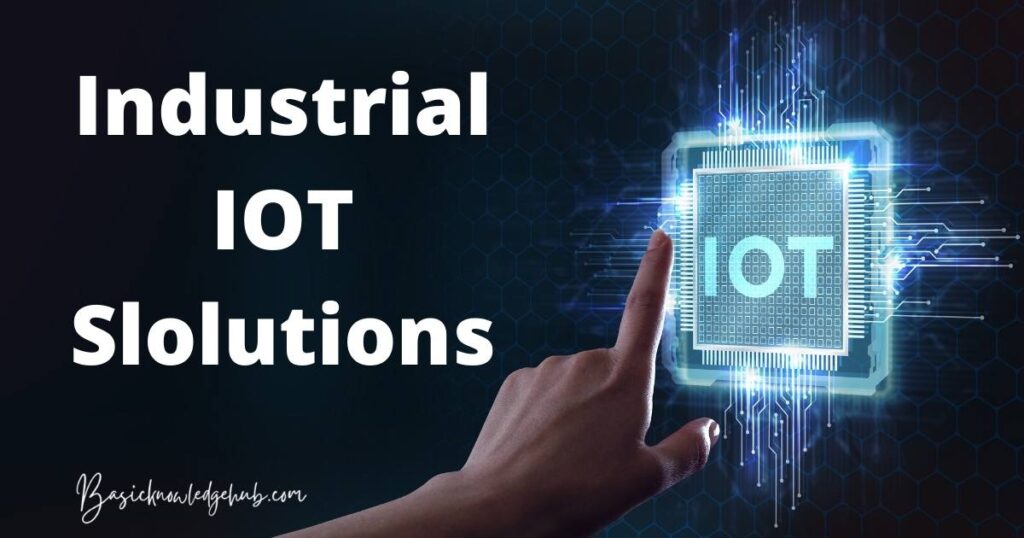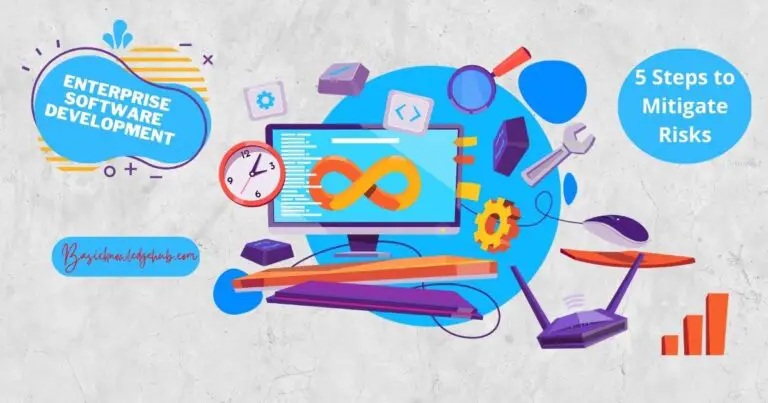The Top 5 Industrial IoT Solutions
The industrial internet of things (IIoT) is a term used to describe the ever-growing network of physical objects connected to the internet. These objects include everything from factory machinery to shipping containers. The IIoT has revolutionized how businesses operate, showing no signs of slowing down. This article will discuss five of the most popular industrial IoT solutions. Stay tuned!
What are industrial IoT solutions?
The industrial IoT refers to the interconnectedness of devices and machines in the industrial sector. This system of interconnected devices can collect and share data, allowing for greater insight and efficiency in manufacturing and other industrial processes. A variety of IIoT solutions are available, ranging from simple sensor networks to more complex data management platforms. Some benefits of industrial IoT solutions include improved safety, increased productivity, and reduced downtime. Additionally, IIoT solutions can help to lower operating costs and improve decision-making. As the industrial sector increasingly relies on impact smart industrial devices, interconnected devices, and machines, IIoT solutions will become increasingly important.

Examples of IoT in the industrial sector
The term “Industrial IoT” (IIoT) gets thrown around often, but what does it mean? In a nutshell, IIoT refers to using connected devices and sensors to collect data in industrial settings. This data can then be analyzed to improve safety, efficiency, and productivity.
IoT industrial applications include:
In a manufacturing plant, sensors can track energy use, equipment performance, and employee productivity. This data can then be used to optimize processes and reduce waste.
In a transportation warehouse, barcodes and RFID tags can be used to track inventory levels and the location of individual items. This information can then streamline shipping operations and reduce the need for manual labor.
In a hospital, patient monitors can be connected to an IoT platform that tracks heart rate, blood pressure, and oxygen levels. This information can then identify potential health problems early and provide better care.
As these examples show, IIoT has the potential to revolutionize many different industries. By collecting data and using it to improve operations, IIoT can help businesses save time, money, and resources.
Examples of IoT solutions
1. Asset tracking:
Many businesses rely on industrial IoT solutions that use GPS or RFID tags to keep track of their equipment. This data can then be used to monitor the real-time location and status of assets.
Benefits: Asset tracking can provide iot business solutions to businesses to improve asset utilization, prevent theft and loss, and reduce downtime.
Drawbacks: Asset tracking can be expensive and requires a reliable network connection. Additionally, if an asset is moved or stolen, it may not be easy to track down.
Best for: Businesses with large fleets of vehicles or mobile assets.
Example: Geotab’s Fleet Tracking system uses GPS tracking to help businesses keep track of their vehicles and other assets
2. Predictive maintenance:
Predictive maintenance is an industrial IoT solution that uses data to predict when equipment will need to be serviced. This information can then be used to schedule Maintenance activities in advance, preventing downtime and reducing the need for emergency repairs.
Benefits: Predictive maintenance can help businesses to improve equipment uptime, reduce maintenance costs, and avoid production delays.
Drawbacks: Predictive maintenance requires significant data, and it can be challenging to implement. Additionally, if equipment fails unexpectedly, it may cause production delays.
Best for: Businesses with large fleets of vehicles or complex machinery.
Example: General Electric’s Predix platform uses data from sensors to predict when machines will need to be serviced.
3. Inventory management:
Inventory management is an industrial IoT solution that uses RFID tags or barcodes to track inventory levels in real-time. This information can then be used to optimize stock levels, reduce the need for manual labor, and avoid production delays.
Benefits: Inventory management can help businesses to improve stock accuracy, reduce waste, and streamline operations.
Drawbacks: Inventory management can be expensive and requires a reliable network connection. Additionally, if inventory levels change unexpectedly, it may cause production delays.
Best for: Businesses with extensive inventories or complex supply chains.
Example: SAP’s Ariba solutions use real-time RFID tags to track inventory levels.
4. Quality control:
Quality control is an industrial IoT solution that uses sensors to monitor the quality of products or materials in real-time. This information can improve production processes, identify defects early, and avoid customer complaints.
Benefits: Quality control can help businesses to improve product quality, reduce waste, and prevent customer dissatisfaction.
Drawbacks: Quality control requires a significant amount of data and can be challenging to implement. Additionally, if products are defective, it may cause customer dissatisfaction.
Best for: Businesses that produce high-quality products or require strict compliance with regulatory standards.
Example: Hexagon’s PPM solutions use sensors to monitor the quality of products in real-time.
5. Energy management:
Energy management is an industrial IoT solution that uses sensors to monitor energy usage in real-time. This information can improve energy efficiency, reduce costs, and avoid production delays.
Benefits: Energy management can help businesses to save money, reduce emissions, and improve equipment uptime.
Drawbacks: Energy management requires a significant amount of data, which can be challenging to implement. Additionally, if energy usage changes unexpectedly, it may cause production delays.
Best for: Businesses with extensive facilities or complex machinery.
Example: Johnson Controls’ Metasys platform uses real-time sensors to monitor energy usage.
At Yalantis, we have extensive experience working with GPS tracking systems and other asset tracking solutions. We can help you choose the right solution for your business and integrate it into your existing systems. Our developers are also experienced in building custom IoT applications from scratch. Contact us today to learn more about our services.


